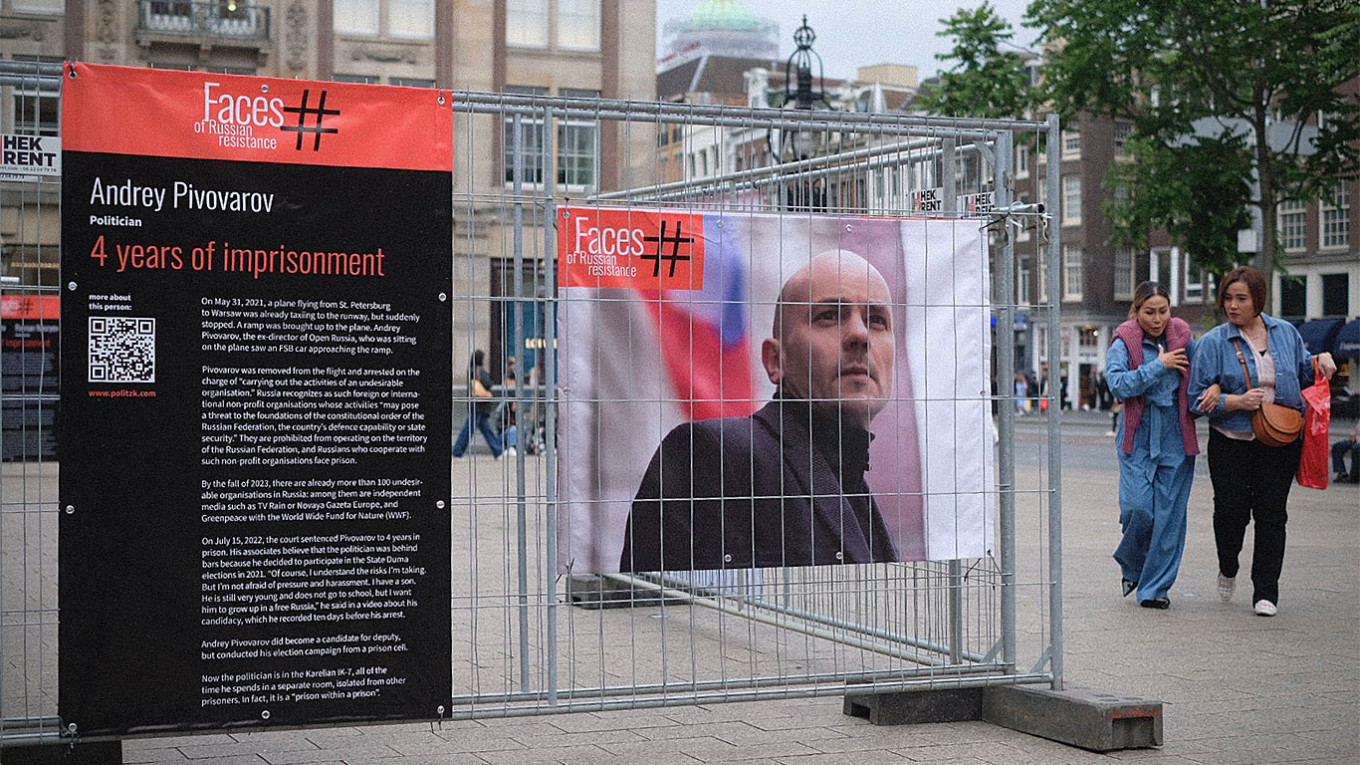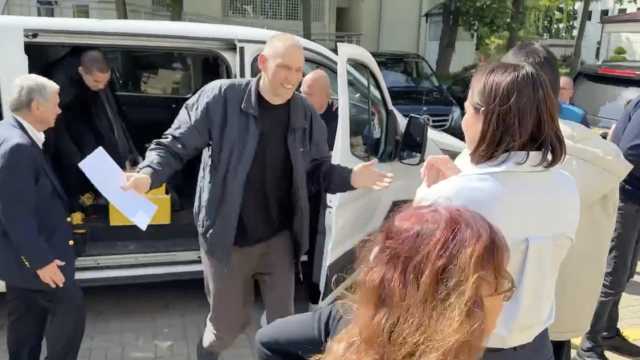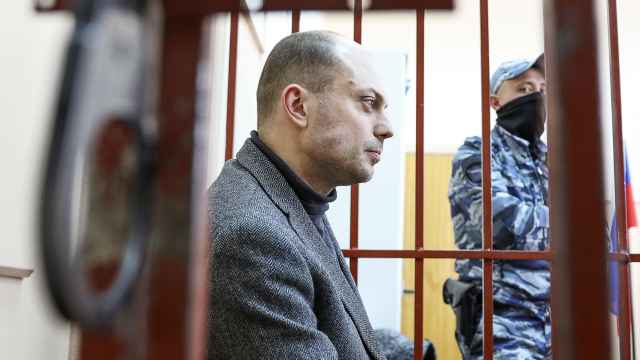AMSTERDAM — An exhibition dedicated to political prisoners in Russia opened in the heart of the Dutch capital on Tuesday.
“Faces of Russian Resistance” displays 16 stories of politicians, activists, artists and public figures designated as political prisoners by human rights groups.
“We understand that hundreds of people are now in prison based on political charges. Our aim is to show the variety of [President Vladimir] Putin's repressions and crimes against the people,” Elena Filina, one of the project’s organizers, told The Moscow Times at the opening.
The Kremlin has ramped up its repressions against opposition figures and independent voices since invading Ukraine over two years ago. At least 729 people are in Russian prison because of their political beliefs or actions, according to the Nobel Peace Prize-winning rights group Memorial — many of whom were jailed for opposing the war.
“This exhibition is an opportunity for Russians to tell the world what is happening in the country,” said Filina, a Moscow municipal deputy who fled Russia after she was prosecuted for her anti-war views.
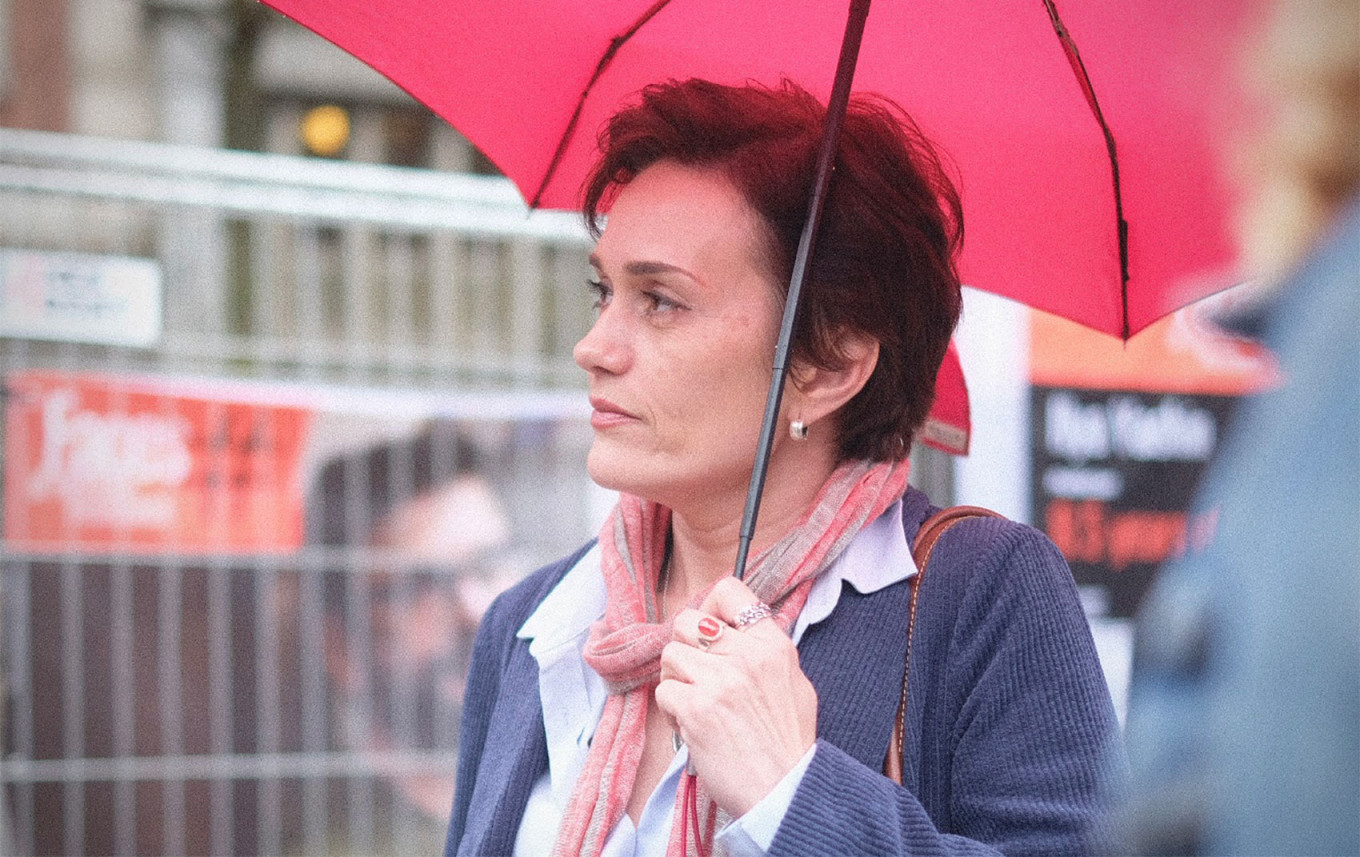
One photo shows Natalya Filonova, a 62-year-old pensioner and longtime activist, who was jailed for allegedly attacking police during protests against Russia’s mobilization for the war in Ukraine in fall 2022.
Another story featured in the exhibition is that of Alexandra Skochilenko, an artist from St. Petersburg who was sentenced to seven years behind bars for replacing price tags at a local supermarket with slips of paper carrying anti-war statements.
Opposition politician Vladimir Kara-Murza, whose photo is also on display at the exhibition, is serving a 25-year prison sentence on charges including treason after he criticized the invasion of Ukraine.
Kara-Murza’s wife Evgenia, who was at the opening, stressed the need to keep the topic of political prisoners in the public eye, including in the West.
“We should keep discussing this constantly, otherwise, public attention shifts to other matters, especially for those living in countries where such [repression] cannot occur," Evgenia Kara-Murza told The Moscow Times, referring to Western politicians.
“These stories are shocking, but people need to know them,” she added.
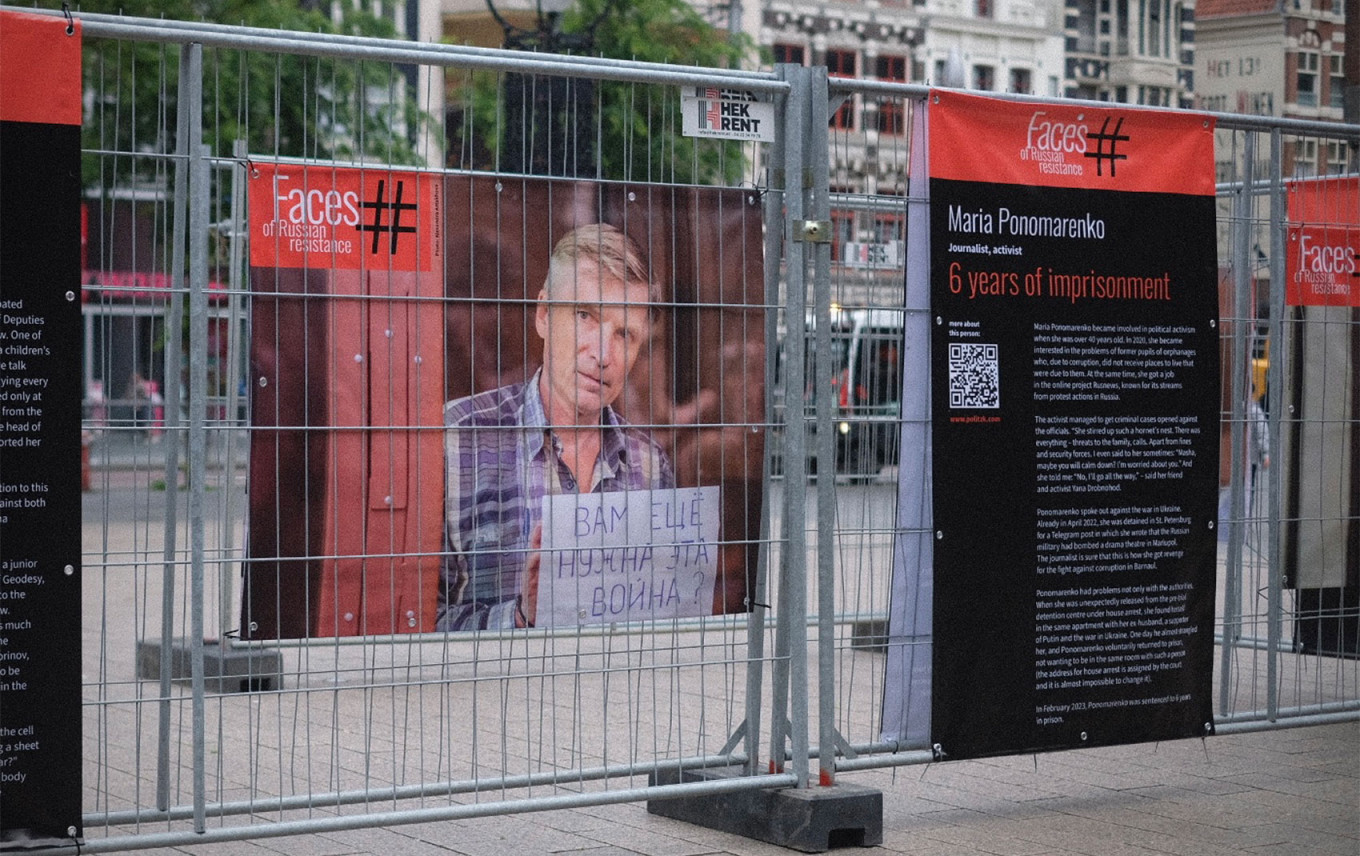
While the exhibition, developed by volunteers and already shown in more than 20 European cities, may not include all political prisoners, it serves to illustrate “the scale of the repressions” and “ensure that the issue of the release of Russian political prisoners is included in any communications with the Russian authorities,” organizers said.
“We cannot assume that people are fully informed about the situation inside Russia,” said Kris Petrasova, the press officer of Free Russia NL, a pro-democratic organization of Russian-speaking residents and citizens of the Netherlands.
“For Europeans, who lead their own lives and might not be familiar with it, seeing the faces and reading the stories of those being repressed is important,” she continued.
The exhibition also highlights the conditions that political prisoners endure within the Russian penitentiary system.
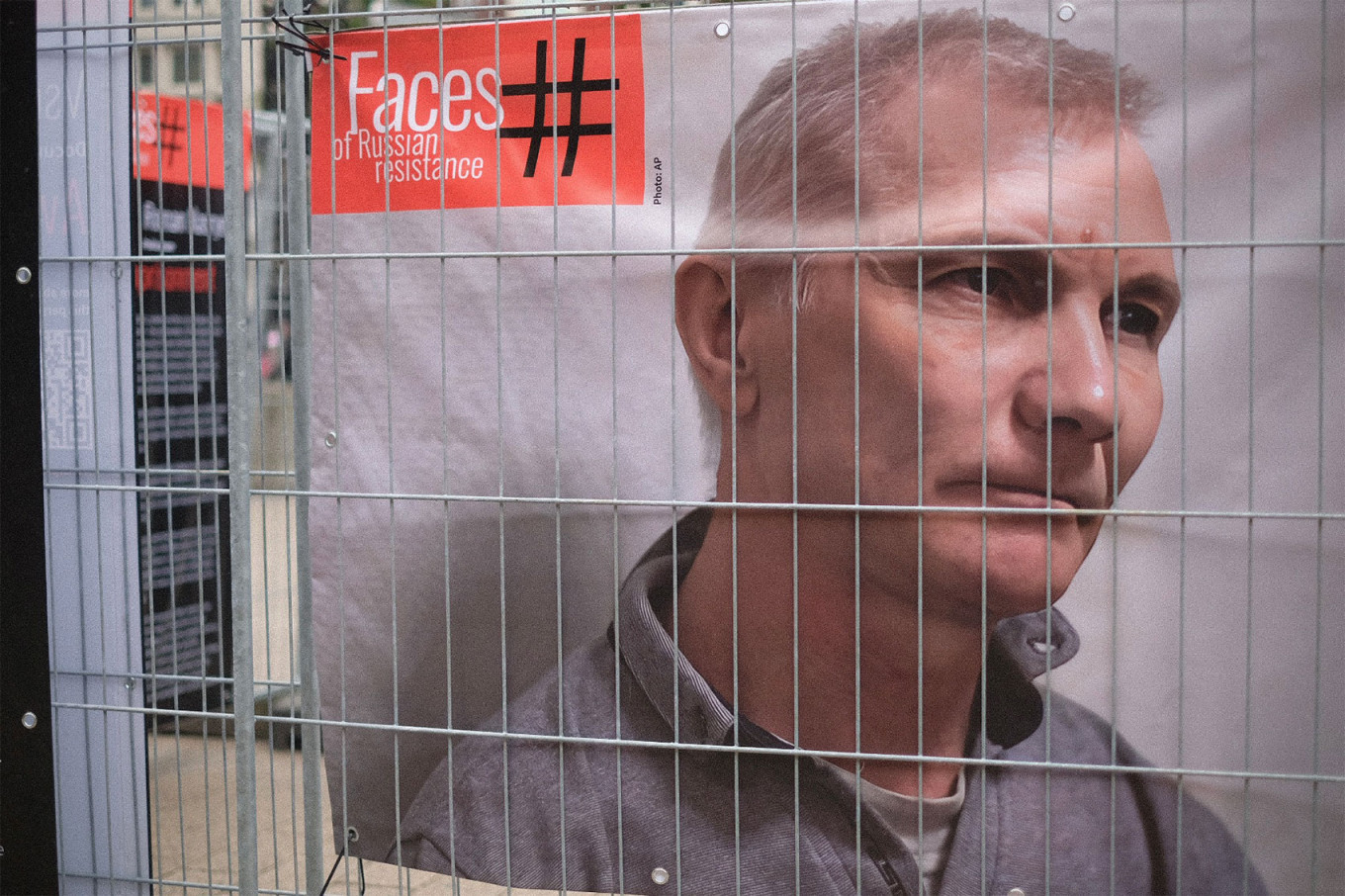
Many political prisoners are denied the right to communicate with their families, while families’ letters and parcels to prisoners are often delayed.
Alexei Navalny’s death in an Arctic penal colony in February, which his team blames on Putin, has increased worries for the safety of other Kremlin critics jailed in Russia, particularly Kara-Murza, who survived two separate poisonings in 2015 and 2017.
Kara-Murza was recently transferred to a Siberian penal colony and has repeatedly been isolated in a punishment cell. His health has reportedly sharply deteriorated in jail.
Evgenia Kara-Murza said her fight to free her husband has sent her “on the run” across Western capitals to lobby politicians to do more to pressure Moscow to free its political prisoners.
“Maybe if we talk about it, there will be more support [from the public],” Kara-Murza told The Moscow Times.
“And maybe these people might survive.”
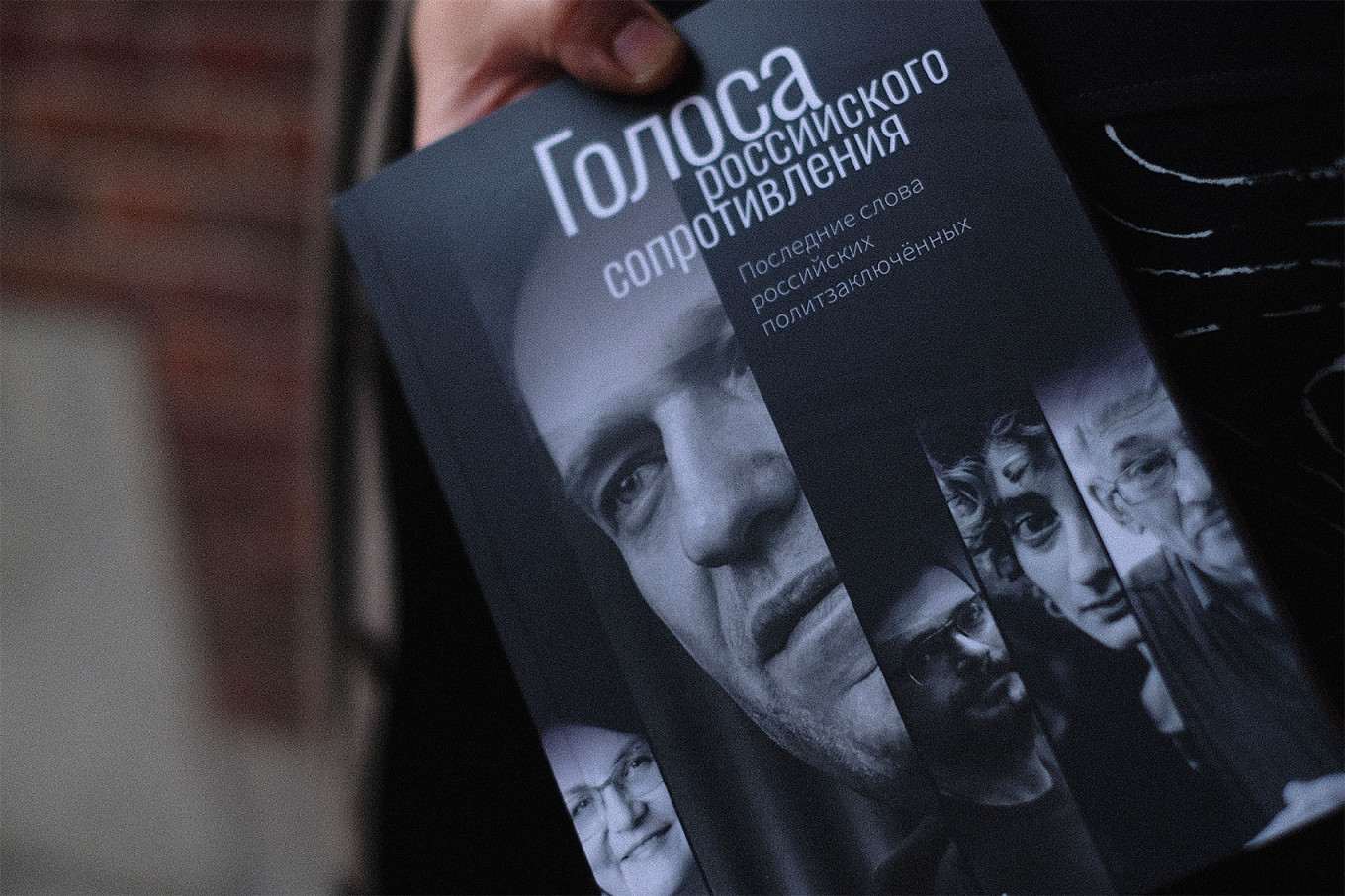
A Message from The Moscow Times:
Dear readers,
We are facing unprecedented challenges. Russia's Prosecutor General's Office has designated The Moscow Times as an "undesirable" organization, criminalizing our work and putting our staff at risk of prosecution. This follows our earlier unjust labeling as a "foreign agent."
These actions are direct attempts to silence independent journalism in Russia. The authorities claim our work "discredits the decisions of the Russian leadership." We see things differently: we strive to provide accurate, unbiased reporting on Russia.
We, the journalists of The Moscow Times, refuse to be silenced. But to continue our work, we need your help.
Your support, no matter how small, makes a world of difference. If you can, please support us monthly starting from just $2. It's quick to set up, and every contribution makes a significant impact.
By supporting The Moscow Times, you're defending open, independent journalism in the face of repression. Thank you for standing with us.
Remind me later.



